Finding your path in the upcoming ESG regulations
Finding your path in the upcoming ESG regulations: A spotlight on EU Taxonomy and Disclosures The Taxonomy is a classification framework, part of the EU Sustainable Finance Action Plan, designed to determine whether an economic activity is environmentally sustainable.
New Frontiers: African Sovereign Debt and ESG Risk
In New Frontiers: African Sovereign Debt and ESG Risk, we leverage our Country Risk Ratings to analyze ESG risk among African countries. Our findings show country-level ESG risk and average sovereign credit ratings exhibit a strong positive correlation.
The Budding Cannabis Industry: A first look at ESG Considerations
While investors are being drawn to the cannabis industry by the lure of an expanding market and profit potential, uncertainties around regulations, scalability and potential stock price corrections remain. Underexplored ESG risks could also present material concerns for management teams and investors entering the industry.
ESG Transparency Poland (Polish Report)
Since 2012, GES together with the Polish Association of Listed Companies, a self-government organization of companies listed on the Warsaw Stock Exchange, has been involved in an educational project ESG analysis of companies in Poland aimed at increasing disclosure and transparency of reporting on non-financial indicators.
Emerging Markets Equities: Key Sources of ESG Risk
Based on our analysis, we find that investors in the FTSE Emerging Index are exposed to over 14 percent more unmanaged ESG risk than those in the FTSE Developed Index. The ESG risk gap between these indices is largest on the issue of data privacy and security. In addition, investors in select equity markets, such as China, may face a trade-off between chasing higher economic growth and mitigating portfolio ESG risk.
Mirova: Food Security - Closing the Food Gap
Solutions for closing the food gap are likely to come from both production innovations and changes in consumption trends: on the one hand, it is essential that we increase the supply of food, while on the other, there is real potential for a reduction in demand for certain commodities.
Progress report on investor expectations and corporate benchmark in cocoa
GES has engaged the cocoa industry for many years to increase its effort in tackling the issue of child labour. As a part of its long-term engagement, GES published its second public report on the issue, including investor expectations and a corporate benchmark of leading cocoa and chocolate companies.
Nuclear Power and ESG: Can They Play Together?
Nuclear power in particular can be a controversial and confusing topic with respect to ESG factors. Sustainalytics, a leading global ESG and corporate governance analytics firm, has joined Morningstar Research Services to present a comprehensive ESG analysis of nuclear power, including a look at carbon emissions intensity, waste management, operational management, public safety, worker safety, and regulatory oversight.
Climate Week’s Financing a Greener Future
The first half of 2020 saw $200bn in sustainable bonds issued globally with green bonds accounting for nearly half of that. As more companies commit to achieving net-zero emissions and as the world shifts to a low carbon economy, the CEO Investor Forum and Sustainalytics welcome industry experts to weigh in on the state of the sustainable finance market during this one-hour virtual event.
Managing data privacy risk: comparing the FAANG+ stocks
Collecting and processing personal data has become one of the most significant drivers of financial value in today’s economy. But as the upside of personal data grows, so too does the downside risk associated with data security, management and privacy.
Tomorrow's Board
The world is changing faster than it ever has. As a result, companies are facing increasingly complex and numerous challenges. They need to adapt faster, and in this process, the board has a crucial role to play. A new vision of the board is needed to help start a process today that will result in them being better prepared for tomorrow’s challenges.
Preparing for a sustainable future through ESG investment and engagement
ING Wholesale Banking (WB) is the commercial banking business of ING Bank N.V. Using a forward-looking financing approach that incorporates environmental, social and governance (ESG) considerations, ING WB provides banking services for large, multinational corporate clients, banks, insurance companies and other institutional investors.
Investor’s Guidance on Children’s Rights Integration
To establish how, and to what extent, investors are considering children’s rights in their policies and practices, GES also worked with the Global Child Forum, a Swedish not-for-profit foundation, to survey asset owner PRI signatories in 2014, 2015 and 2017.
Taking responsibility through the consideration of ESG factors and Global Compact Principles
Placing its clients’ interests centre stage, ABN AMRO understands the importance of delivering optimum service and offering transparent and simple products, while remaining at the forefront of technological developments and innovative solutions for client convenience. As part of its fiduciary duty and as a bank that commits to the United Nations-supported Principles for Responsible Investment, ABN AMRO has a detailed plan for ESG integration, engagement and sustainable investing.
Sustainable Banking Insights
An increasing number of financial institutions integrate sustainability considerations such as environment, social and governance factors into their investment decisions and product development. Increased customer awareness, regulations, and growing evidence of the long-term benefits of considering sustainability in investment decisions has led to a significant growth in the sustainable finance field.
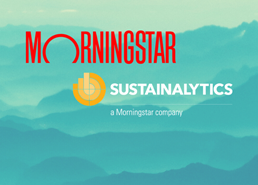
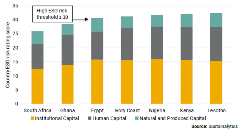
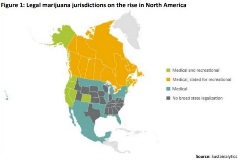
.tmb-small.png?Culture=en&sfvrsn=22076ca_2)

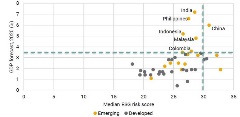
.tmb-small.jpg?Culture=en&sfvrsn=60d17804_2)



.tmb-small.png?Culture=en&sfvrsn=2b2a9c60_2)
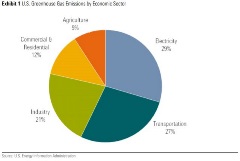

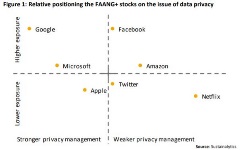
.tmb-thumbnl_rc.png?Culture=en&sfvrsn=72dd1885_2)




